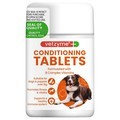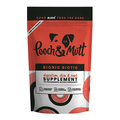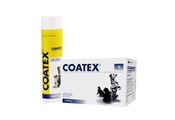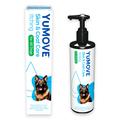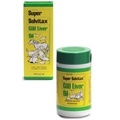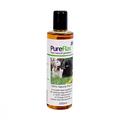We’ve been treated to soaring temperatures and brilliant sunshine this week, which means hopefully the dark throes of winter are finally over.
But in this glorious weather, have you noticed your dog itching and scratching more? It’s possible that your dog is allergic to something in the environment, such as pollen, grasses and dust mites.
These allergens are more abundant in warm weather which is why you may have noticed a recent change in your dog’s behaviour. While seasonal allergies usually affect respiration in humans, in dogs they tend to affect the skin, causing allergic dermatitis.
Skin conditions can also be exacerbated by outdoor biting insects, including fleas and ticks. Very often allergic dermatitis will cause such extreme itchiness than uncontrollable licking and scratching occurs, damaging the skin and even leading to secondary infections.
 If an area is repeatedly aggravated, it is known as a ‘hot spot.’ Once one appears, it can be difficult to treat as the itch/scratch cycle is self-perpetuating.
If an area is repeatedly aggravated, it is known as a ‘hot spot.’ Once one appears, it can be difficult to treat as the itch/scratch cycle is self-perpetuating.
On noticing a problem with your dog’s skin, including an area of hair loss or inflammation, it is important to go and see your vet. They may want to conduct allergy tests to try and find the cause and can prescribe antihistamine creams and medicated shampoos if necessary.
Other symptoms to look out for include puffy eyes, paw chewing, generalised redness (particularly of the paws and around the eyes) including red, moist or scabby skin, sneezing and even diarrhoea.
Your vet may also suggest frequent baths, taken midday and in the evening, to wash away allergens such as pollen that have attached themselves to the coat and been brought inside.
It is important not to over-bathe your dog though as this can exacerbate the problem by drying out the skin, but if you use a gentle, oatmeal shampoo (or a medicated one on your vet’s advice) you should be fine.
Getting the diet right is also critical when it comes to supporting your dog’s skin and managing allergies. Poor quality diets are often packed with cheap fillers like grains and cereals that exacerbate allergies and related skin complaints.
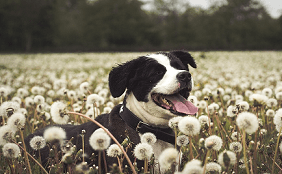 Dogs with recurring problems are likely to benefit from a diet rich in meat (providing they don't have a food allergy) and many choose to feed raw. If you need advice on choosing the right diet (commercial kibble or raw), please get in touch with us or contact your vet directly for more info.
Dogs with recurring problems are likely to benefit from a diet rich in meat (providing they don't have a food allergy) and many choose to feed raw. If you need advice on choosing the right diet (commercial kibble or raw), please get in touch with us or contact your vet directly for more info.
Sometimes it is possible to find the cause of the allergy, and other times identifying it is more difficult. If you don't isolate the allergen early on and then repeatedly expose your dog to it, the likelihood is symptoms will reocurr every year, gradually getting worse and worse, until eventually the problem presents year-round.
Once you've found the offending allergen, your vet may suggest a skin supplement like Yumega to give alongside medication. Yumega contains carefully blended oils to help improve skin health, reduce skin sensitivity and reduce itching. We also stock a range of other products for the health of the skin and coat once the root cause has been identified.
If you have found this article useful, you may be interested to read our other related articles: Allergy related itchy skin, Skin allergies in dogs, Seasonal allergies and itchy skin, How to treat adverse food reactions in dogs, Dealing with food allergies, Elimination diets: a simple guide to identifying a food allergy.
If you have any comments or advice you'd like to share with our other readers, please comment below!
Written by: Hannah



